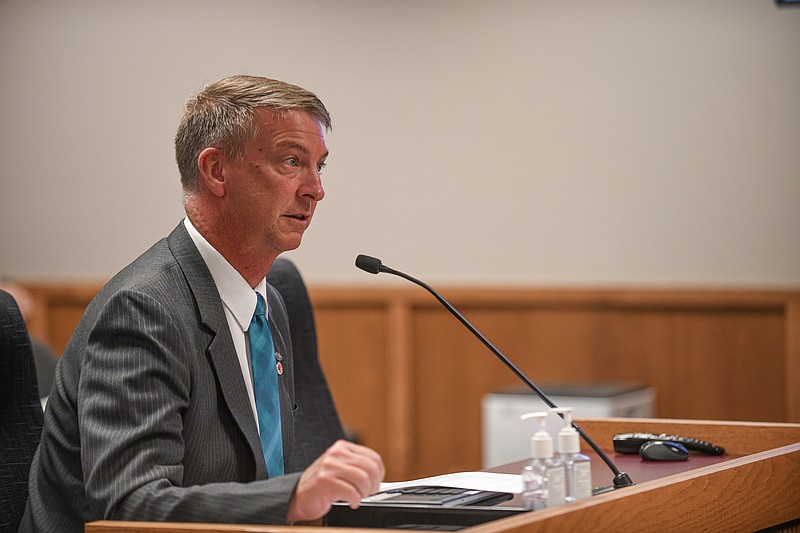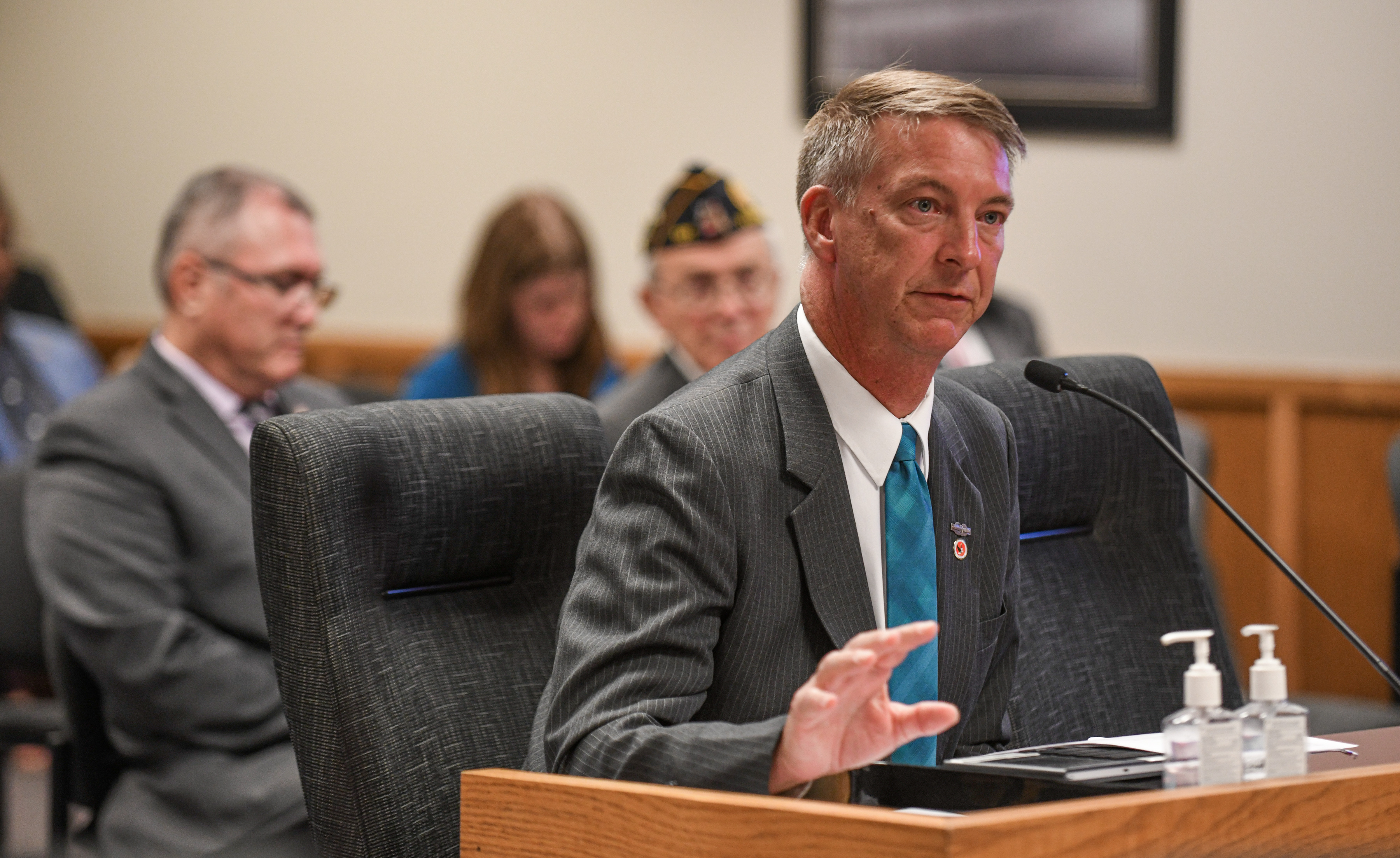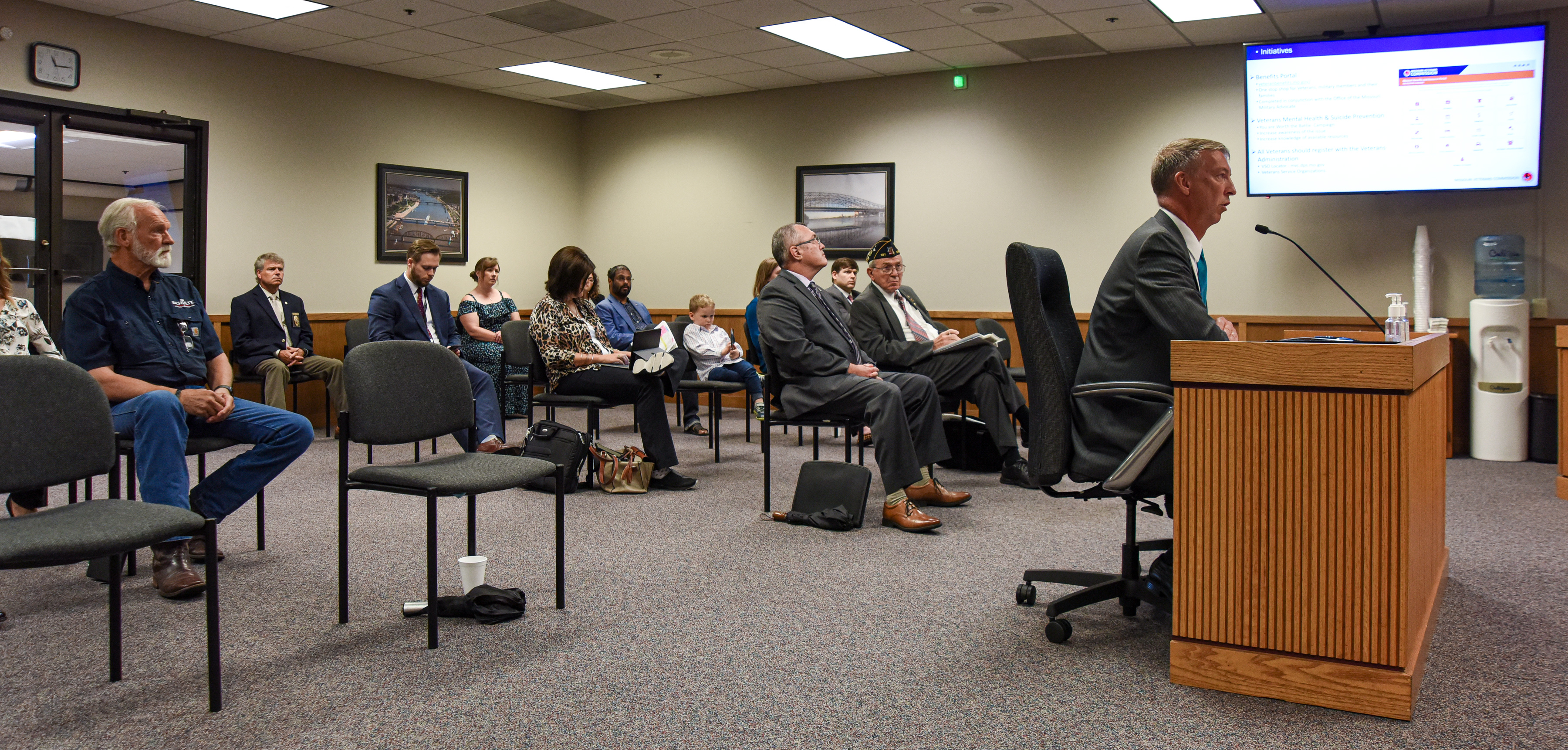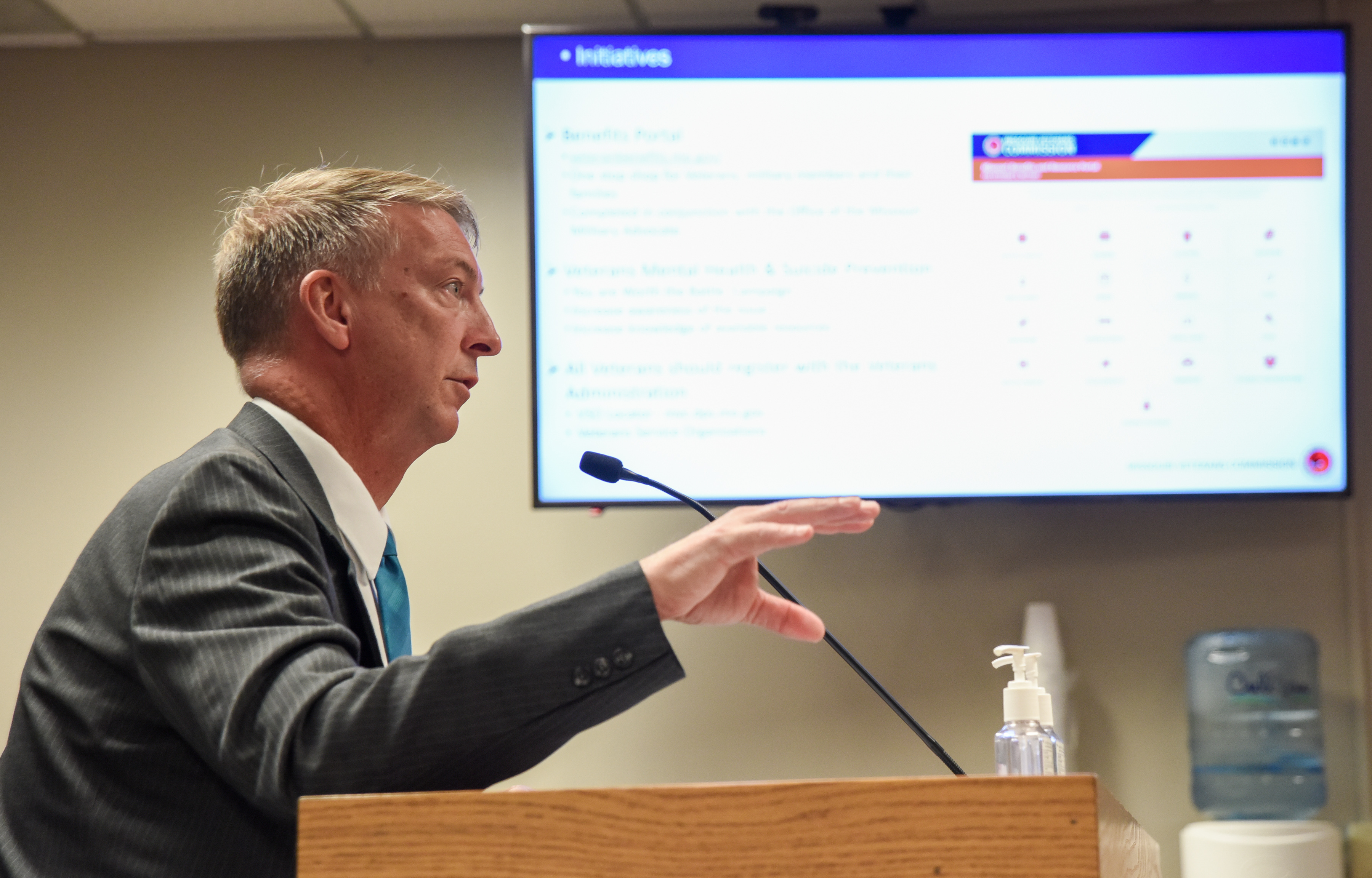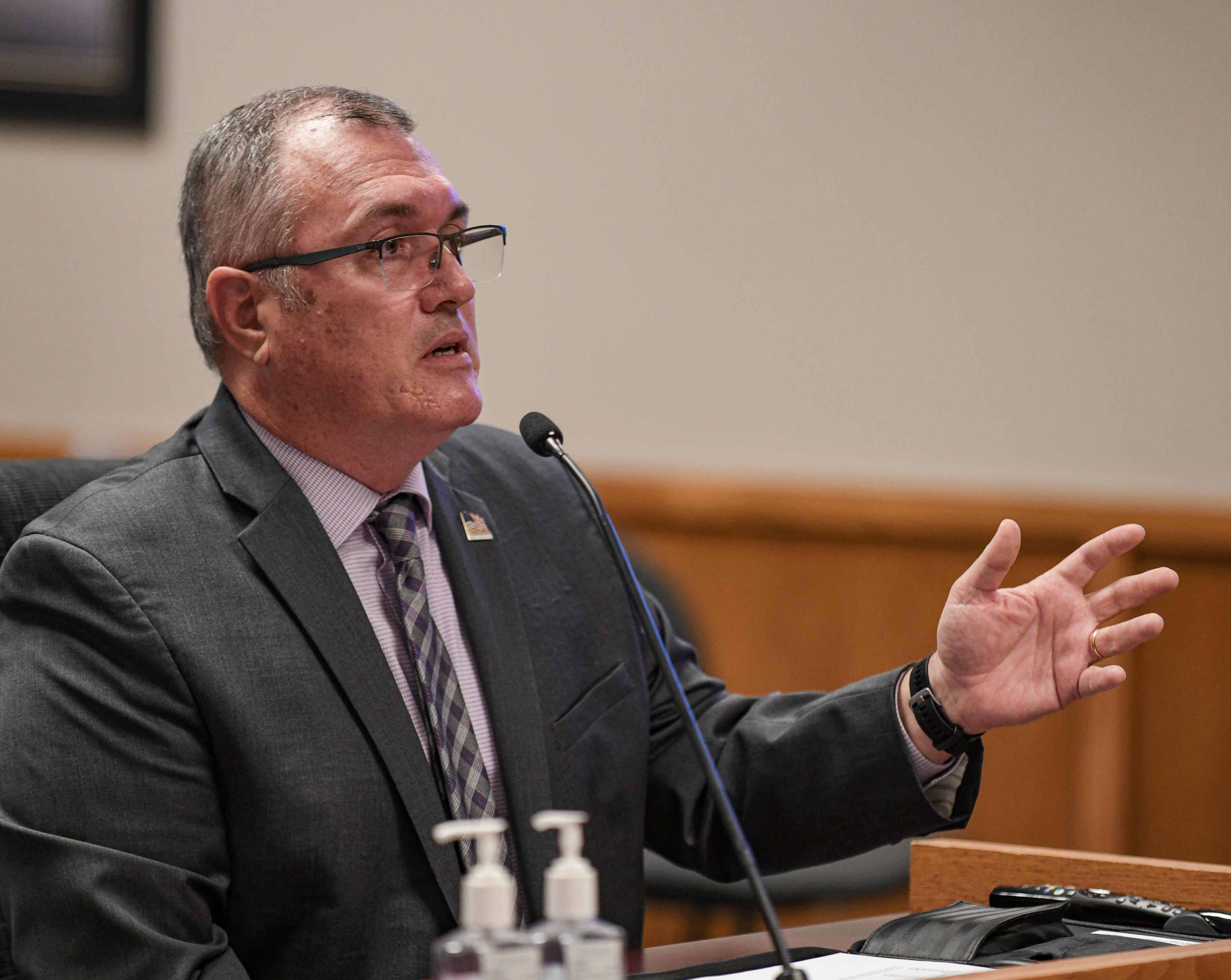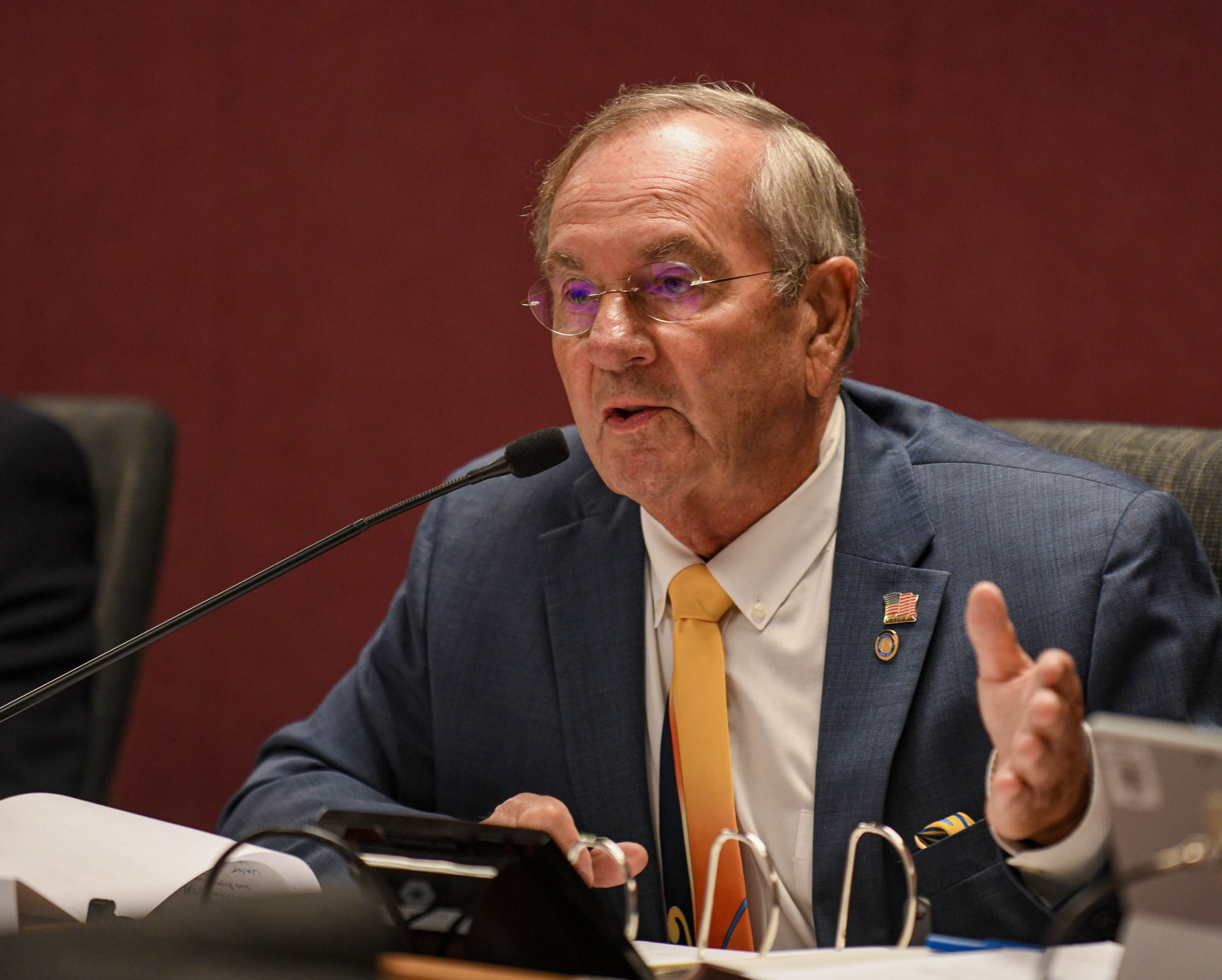The inaugural hearing of the Missouri House Interim Committee on Veterans Mental Health and Suicide began hopefully enough, with speakers discussing programs that offer solutions to nationwide problems.
But it devolved into a discussion about the toughness of services members -- past and present.
However, the meeting's tone changed when Matthew "Matt" Brown's widow, Kelly Brown, and daughter, Bailey Blackmann, stepped in to testify about his death this past November.
Matt Brown had a 21-year career as a Springfield police officer, and served many different roles in the department. He also served 25 years in the Missouri Army National Guard, and rose in its ranks to lieutenant colonel.
He was a natural teacher, Kelly Brown said.
"Kind and inclusive to everyone," she said. "He was drawn to the person in the room who was unique. He could make you feel like the only person in the room. He was patient and gave everyone the benefit of the doubt. He shined the most as a father."
She described how he strove to attend their children's events and even helped them sneak pet snakes into the home -- against her better wishes.
But there had been issues throughout Matt Brown's life he never spoke about. Family members had abused him as a child. He survived an IED explosion in Afghanistan which left him with nerve damage in an arm.
And in both the police department and the military service, he always completed missions or projects on time and with great success. With each success, he received new responsibilities. He could not turn down any new projects that came to him.
"With each completed mission, there was growing mismatch," Kelly Brown said. "Every additional success was feeding his demons. He was the master compartmentalizer, which in this case was not a good thing."
People who suffer from "invisible agony" will kill themselves the same way people trapped in a burning building will kill themselves by jumping from a window, she said.
He didn't want to die, but for Matt Brown, death seemed slightly less terrible than facing his demons.
There had been signs he might try to kill himself, Kelly Brown said. Two weeks before his death, he began acting strangely.
"He was acting very bizarre," she said. "Moments later, he collapsed and had what I now know was a psychogenic blackout. He begged me not to tell anyone in the police department or Army."
"His blackout spell got me two more weeks with him," she added. "I now realize what he intended that night. I am forever willing to help in any capacity."
Earlier in the hearing, chaired by Rep. Dave Griffith, R-Jefferson City, Missouri Veterans Commission Executive Director Paul Kirchhoff testified the stigma surrounding seeking help for suicidal thoughts is even more pronounced in the military than in the general public. In the military, seeking help for behavioral health issues may be seen as weakness.
"It's a 'get the mission done world or a get the job done world,'" Kirchhoff said.
And when soldiers are being released from service, they don't want to do anything that might prevent them from going home. If they are at a demobilization station, their main agenda is "I just want to go home," Kirchhoff said. "You will tell the demote personnel anything you can just to get out of there."
They won't share their concerns.
He said Missouri remains among the worst states in the nation for its rate of suicides among veterans. And active duty suicides are the most since the Great Depression.
Suicide affects veterans whether they were deployed to war zones or not, Kirchhoff said. He added it affects veterans of all ages and both sexes.
In May 2021, the commission launched a veterans portal, Kirchhoff said. The portal, located at https://veteranbenefits.mo.gov, is available for veterans and their family members to identify and secure benefits to which they are entitled. He encouraged veterans to sign up for benefits, whether they believe they need them or not. If veterans should ever need benefits, they'll already be signed up.
The portal not only provides access to behavioral health services and programs, but to jobs and careers, housing, education, health care, legal services, transportation, clothing and much more. It can even connect them with veteran organizations.
"It can be difficult to find resources. This is an effort to consolidate those issues," Kirchhoff said.
He added information in the portal is continuously updated.
The commission launched the You are Worth the Battle suicide prevention campaign in May, in conjunction with Lt. Gov. Mike Kehoe's office, the Department of Mental Health, the Missouri National Guard, the Department of Economic Development and the Office of the Military Advocate. The media campaign provides resources, training, opportunities and steps to take before during and after a suicidal crisis, according to https://veteranbenefits.mo.gov. Its aim is to provide resources for every community member on how to identify and assist a person in crisis.
Missouri also recently announced the launch of the 988 crisis line for people experiencing a behavioral health emergency.
The commission, Kirchhoff said, would like to see more people taking advantage of the portal, but it's early and word is just getting out.
Missouri Veterans Services Director Jon Sabala said another powerful tool is the MO Buddy Check 22. Through this program, people are asked on the 22nd of each month to check on a buddy, either in person or via phone call, and see how they are doing.
"The main theme of that is promoting connectedness," Sabala said. "Let them know that they are not alone."
You don't have to be an expert to detect a change in behavior, he continued.
The state also offers S.A.V.E. online veterans training. The acronym stands for Signs of suicide, Asking about suicide, Validating feelings, and Encouraging help and Expediting treatment.
S.A.V.E. is a one- to two-hour training program provided by U.S. Department of Veterans Affairs suicide prevention coordinators to veterans and those who serve veterans. It includes role-playing exercises and touches on these components -- suicide prevention, myths and misinformation, and risk factors.
Gary Grigsby, past commander of the Missouri Department of American Legion and a former U.S. Marine, said a "surprising number" of veteran suicides could be reduced, in part by getting veterans to attend American Legion meetings. He said the organization's leadership has initiated a number of programs to reduce suicidal thoughts.
Rep. Mike Stephens, R-Bolivar, pointed out that in the past, reports of suicide were more likely to have occurred in the general public than in veterans. Then there was a flip-flop and rates of veteran suicides topped that of the public. He prompted Grigsby to speculate on why.
Back in the day, Grigsby said, drill instructors encouraged toughness beyond that of the general public.
"Some of the things that were done in Marine training, probably were not (appropriate)," he said.
He said he has two grandsons in the service -- one in the Air Force and one in the National Guard. They were comparing boot camps. The National Guard grandson complained a drill sergeant woke them up early one morning. The Air Force grandson complained they had to be in their bunks by 8 p.m.
"I don't want to say that today's soldiers are less steeled. Statistics seem to indicate that that's a problem," Grigsby said. "If we draw a conclusion, it may be a conclusion that our youth today are not steeled to the kinds of rigors they are going to find."
And, Grigsby said, data show female veterans are more likely to use "weapons" for suicide ideation and therefore are more likely to die by suicide.
He added males use firearms for hunting.
As "toys," Stephens prompted.
Kirchhoff returned to testify again, and to introduce Brown's family.
"I would propose that it is not generational. Mental health issues have always been there," he said. "My perspective on things is that today's generation is as strong as any man from any generation."
He then introduced the Browns.
Their willingness to break through the stigma of suicide, Kirchhoff said, might prevent others from enduring their tragedy, indescribable pain and suffering.
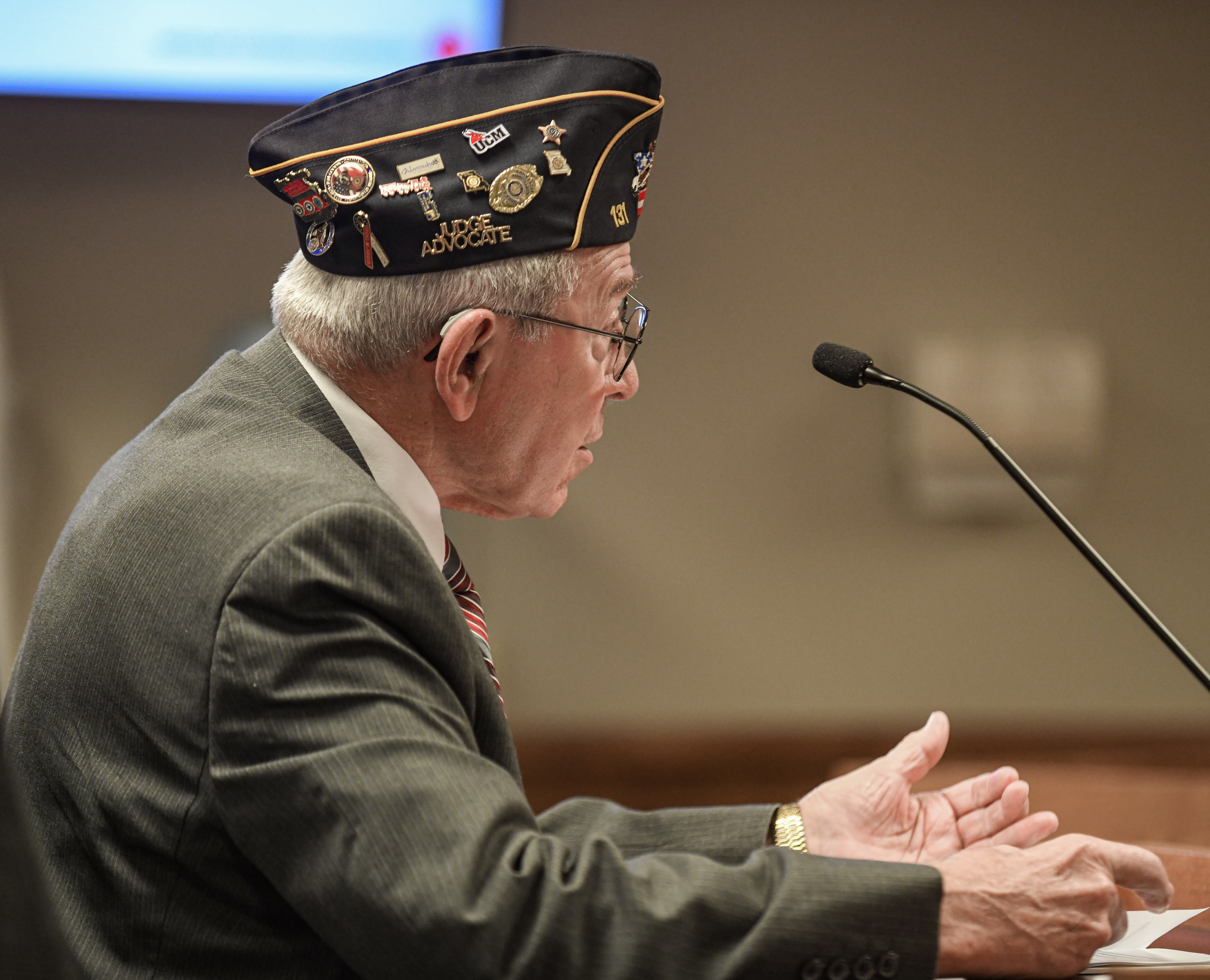 Julie Smith/News Tribune photo: Gary Grigsby was one of several witnesses to speak to representatives Wednesday, July 27, 2022, during a hearing of the House Committee on Veterans Mental Health and Suicide. Grigsby is the immediate past commander of the American Legion Department of Missouri and spoke on behalf of veterans battling suicidal ideations.
Julie Smith/News Tribune photo: Gary Grigsby was one of several witnesses to speak to representatives Wednesday, July 27, 2022, during a hearing of the House Committee on Veterans Mental Health and Suicide. Grigsby is the immediate past commander of the American Legion Department of Missouri and spoke on behalf of veterans battling suicidal ideations.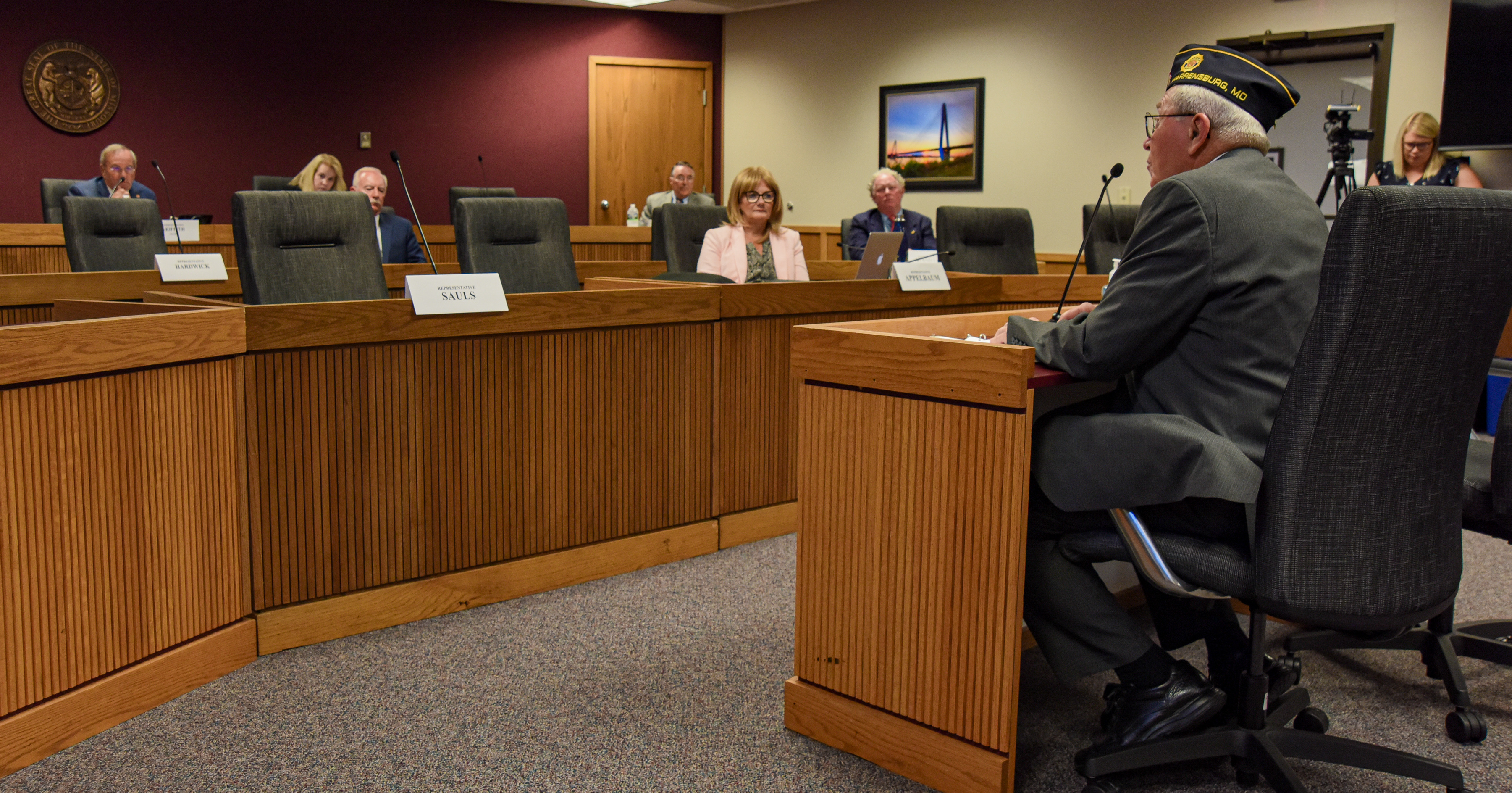 Julie Smith/News Tribune photo: Gary Grigsby, at right, was one of several witnesses to speak to representatives Wednesday, July 27, 2022, during a hearing of the House Committee on Veterans Mental Health and Suicide. Grigsby is the immediate past commander of the American Legion Department of Missouri and spoke on behalf of veterans battling suicidal ideations.
Julie Smith/News Tribune photo: Gary Grigsby, at right, was one of several witnesses to speak to representatives Wednesday, July 27, 2022, during a hearing of the House Committee on Veterans Mental Health and Suicide. Grigsby is the immediate past commander of the American Legion Department of Missouri and spoke on behalf of veterans battling suicidal ideations.
